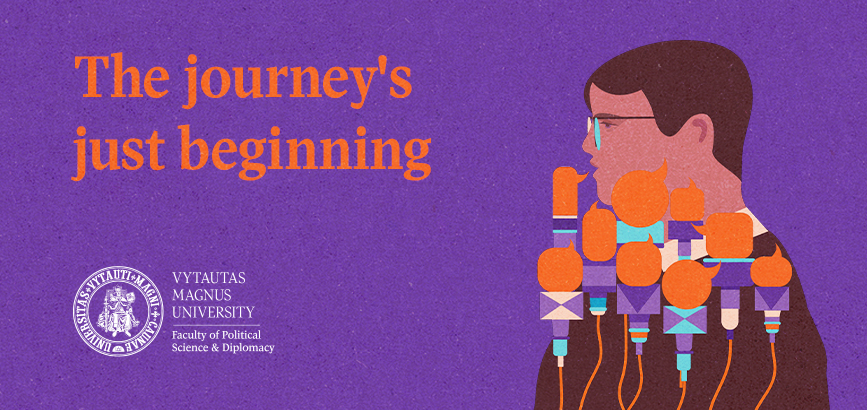Conference „Security, Cooperation and Identity in Northern Europe”
 The conference will summon politicians, academics and experts from Lithuania and the Nordic States and aims at publicizing results of the conference.
The conference will summon politicians, academics and experts from Lithuania and the Nordic States and aims at publicizing results of the conference.
Northern Europe, the network of small and medium-size states and regional organisations is in generous supply of contemporary challenges and opportunities of geopolitical, social and economic nature. Growing assertiveness of Russia in its north-western neighbourhood and beyond, a potential of thaw in relations with Belarus, a need for a responsive engagement of NATO in the Baltic States and Poland, migrant crisis and issues related to EU solidarity, the rise of Eurosceptic and far-right political mood in the region, let alone far reaching consequences of terrorism constitute a fertile ground for political and academic discussions. Their synergy enables us to have a better grasp of political complexities and scout around for cooperative responses to the aforementioned problems.
Date and location: 29 January 2016 , Embassy of Finland, Vilnius, K. Kalinausko str. 24
Organisers: Vytautas Magnus University, Embassies of Finland, Norway and Sweden in Lithuania and Nordic Council of Ministers Office in Lithuania
Language of the conference is English.
International conference “European Energy Union: Why do we need it and how we can make it work?”
 27-28 January, at Vytautas Magnus University (S. Daukanto st. 28, Small Hall, (Kaunas)) will gather experts from Lithuania, Europe and the United States of America, as well as representatives from the Ministries of Foreign Affairs and Energy of the Republic of Lithuania to international conference “European Energy Union: Why do we need it and how we can make it work?”.
27-28 January, at Vytautas Magnus University (S. Daukanto st. 28, Small Hall, (Kaunas)) will gather experts from Lithuania, Europe and the United States of America, as well as representatives from the Ministries of Foreign Affairs and Energy of the Republic of Lithuania to international conference “European Energy Union: Why do we need it and how we can make it work?”.
The conference will focus on the creation of the Energy Union, providing a unique opportunity to discuss the importance of fully integrated European energy market, to evaluate how EU Energy Union can contribute to strengthening the security of energy supply, to determine the challenges and obstacles to a more coherent Europe-wide energy system, and envisage linkages with contemporary political, economic, technological and environmental developments.
The conference should be opened by the Minister of Foreign Affairs of the Republic of Lithuania Linas Linkevičius, Rector of the Vytautas Magnus University Prof. Juozas Augutis, and the Head of the Konrad Adenauer Stiftung office for the Baltic States and Scandinavia Elisabeth Bauer. The keynote address will be given by the Minister of Energy of the Republic of Lithuania Rokas Masiulis.
The conference is organized by the Vytautas Magnus University, the Konrad-Adenauer-Stiftung, with partnership of the Ministry of Foreign Affairs of the Republic of Lithuania and the Ministry of Energy of the Republic of Lithuania.
The opening of the conference 27 January, at 2 P.M.
The beginning of the registration at 1:30 P.M.
Discussion “Terrorist Attacks in Paris: What Do They Mean for Europe?”
 Due to the terrorist attacks in Paris, Vytautas Magnus University research cluster “International Relations and Security Processes: Lithuania in global arena” is organizing the discussion “Terrorist Attacks in Paris: What Do They Mean for Europe ?” on 19th of November, Thursday, 11h15, room 203 Gedimino st. 44.
Due to the terrorist attacks in Paris, Vytautas Magnus University research cluster “International Relations and Security Processes: Lithuania in global arena” is organizing the discussion “Terrorist Attacks in Paris: What Do They Mean for Europe ?” on 19th of November, Thursday, 11h15, room 203 Gedimino st. 44.
The participants of the discussions are: Vice-Dean of Faculty of Political Science and Diplomacy Giedrius Česnakas, PhD, Head of the Social and Political Theory prof. Gintautas Mažeikis, assoc. prof. Rytis Bulota. The discussion will be moderated by Head of VMU research cluster “International Relations and Security Processes: Lithuania in global arena” Gerda Jakštaitė, PhD, and Justinas Juozaitis.
On November 13th, 2015, three teams of terrorists carried out attacks in Paris. 129 people were killed and 352 injured. These terrorist attacks will undoubtedly have an impact on the domestic and foreign policies of European countries, the European economy, the position towards the Syrian refugees. According to dr . Giedrius Česnakas, “the second bloody terrorist attack in Paris in one year indicates that Europe can not feel safe from Islamic fundamentalists. The challenge is not only terrorist attacks, but increasing strength of the radical right-wing powers in Europe and growing hatred towards other religions, cultures and races.” Meanwhile, prof. Gintautas Mažeikis notes that “refugees from Syria also flee from those who blew their families in Aleppo and other cities, and today are attacking Paris.”
How Europe should respond to the terrorist attacks in Paris: take massive protests against the fundamentalists who carried out terrorist acts? Strengthen security of its border? Invest more in migrant integration in Europe? What will be the impact of the terrorist attacks on foreign policy of France and other major powers? Where should we look for causes of in terrorist attacks in Paris: in foreign policy of European countries or in radical political ideologies and movements? Participants of the discussion will try to answer these and other questions.
The discussion will be held in English












